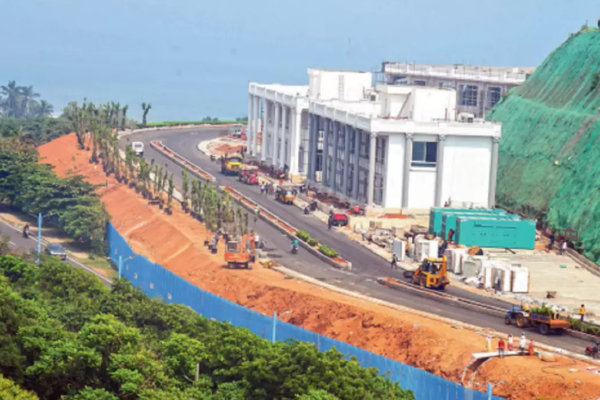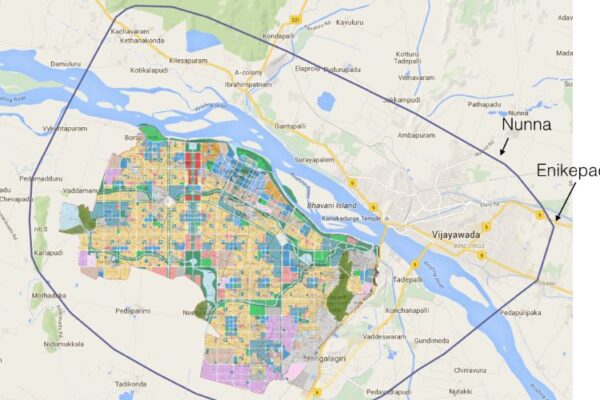
By Nalamotu Chakravarthy
In order to quell 1973’s violent Jai Andhra movement for a separate State, Prime Minister Indira Gandhi’s Congress Government reached an agreement with the leaders of Andhra Pradesh. That agreement is often called the Six-Point Formula.
As part of that agreement, six new zones were defined. Each zone had a set of districts. Zone 1: Srikakulam, Vizianagaram, and Visakhapatnam, Zone 2: East Godavari, West Godavari, and Krishna, Zone 3: Guntur, Prakasham and Nellore, Zone 4: Chittoor, Cuddapah, Anantapur, and Kurnool, Zone 5: Adilabad, Karimnagar, Warangal, and Khammam, Zone 6: Ranga Reddy, Nizamabad, Mahbubnagar, Medak, and Nalgonda.
Hyderabad district was categorized separately as it was the State capital.
In the 6-point formula’s zonal agreement, 80% of Class-IV government jobs were reserved to those from their respective native districts. 70% of the non-gazetted posts were reserved for locals of each native zone, and similarly 60% of gazetted posts were reserved for locals of the native zone.
6-Point formula did not apply to certain government posts and these were detailed in Section 14 of the agreement. These included posts in the Secretariat, offices of the Heads of Department, and posts in other State level offices or institutions. Lastly, clause 14(f) excluded police officer posts, hired under the Hyderabad City Police Act, from the agreement.
This 14(f) clause has become a bone of contention over the past several years. The arrangement to allow candidates from all districts of the State to apply for police jobs in the capital city is not unusual. For example, Delhi police recruits from all the states in the country. Its 2009 recruitment notice said: “Recruitment will be held at Delhi for which candidates from all parts of the country…can apply”.
Separatist leaders claimed that opening up of Hyderabad posts to all districts in the State has resulted in jobs being looted by other regions of the State. They have instigated students against the government and people from other regions of the State. ‘14F’ became a rallying call for the students.
So, let us see if the repeal of 14(f) actually benefits those hailing from Nizam districts.
Andhra Pradesh police department, in 2005, compiled a list of police constables working in Hyderabad, but are not natives of the city. They’ve identified a total of 2869 candidates and here is their split by district- Srikakulam: 140, Vizianagaram: 23, Visakhapatnam: 23, East Godavari: 104, West Godavari: 97, Krishna: 113, Guntur: 247, Prakasam: 356, Nellore: 30, Chittoor: 53, Anantapur: 51, Kurnool: 128, Kadapa: 96, Mahabubnagar: 459, Nalgonda: 251, Ranga Reddy: 347, Medak: 125, Nizamabad: 37, Adilabad: 10, Karimnagar: 33, Warangal: 99, Khammam: 47.
If you group these posts by regions- Kosta: 1133 (39%), Rayalaseema: 358 (12%), Nizam: 1408 (49% ).
Now, let us see the percentage population of these regions excluding Hyderabad- Kosta: 44%, Rayalaseema: 19%, Nizam: 38%.
What does this indicate? Nizam region (excluding Hyderabad), despite having 38% population availed 49% of the police constable jobs, whereas Kosta with 44% of the population availed 39% and Rayalaseema with 19% of the population availed 12% of the non-local police constable jobs.
One may argue that with the repeal of 14(f), all the jobs will now go to Hyderabad citizens. However, Hyderabad today is a cosmopolitan city with residents from all regions of the State and all parts of the country living in it. So, jobs in Hyderabad will be availed by people of all regions living in the city and not necessarily from a particular region.
Government of Andhra Pradesh recently issued a notification for the hiring of 2,643 police constables in the city. If past trends were to hold good in the current recruitment phase, who are the worst affected by the repeal of 14(f)? The rural unemployed youth of Mahbubnagar, followed by Prakasam, Ranga Reddy and Nalgonda! These are the four districts that sent highest number of non-locals to the Hyderabad Police Department.
Interestingly, past efforts by the police department to recruit constables from Hyderabad were partially successful. Hyderabadi’s are not interested in taking up constable jobs, when there are less risky and more lucrative jobs available in the city. It is the rural unemployed that are keen on taking up these jobs. Our politicians in their infinite wisdom have fought hard to deny these employment benefits to our rural poor and underprivileged.
As long as our creator continues to shower our leaders with this kind of wisdom, we can be rest assured of our third world country status.









